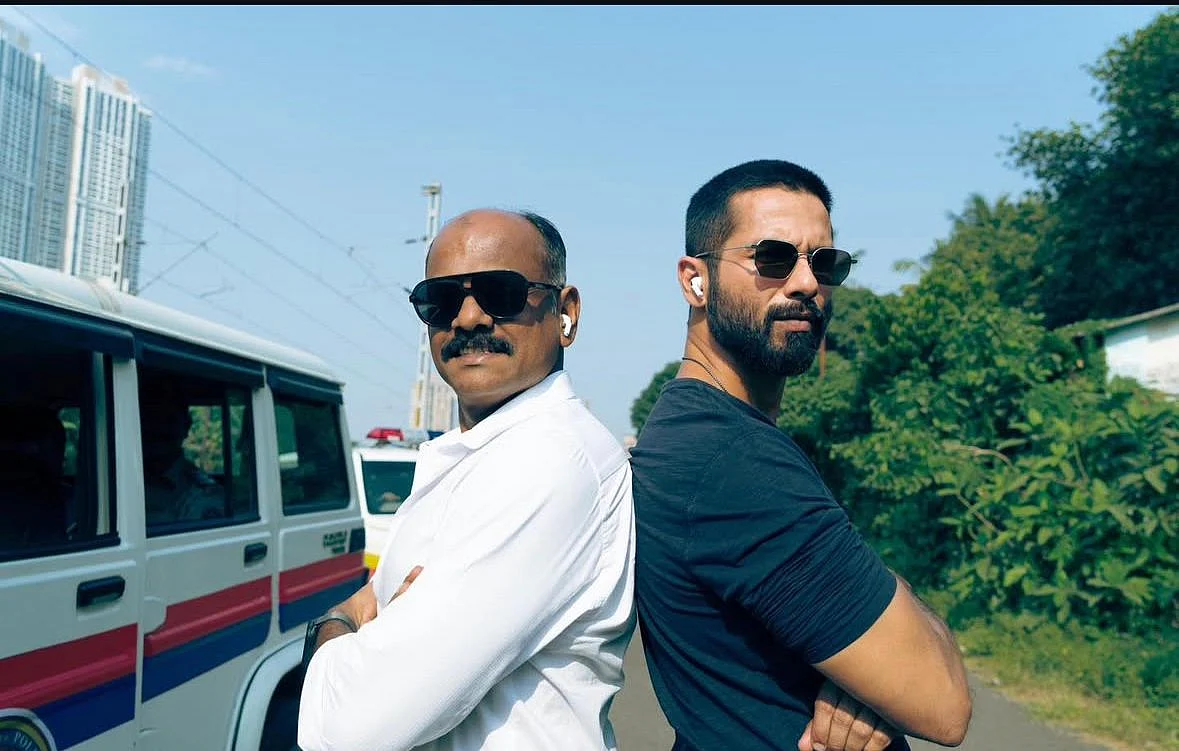Bollywood vs Malayalam: Deva movie director Rosshan Andrrews on Shahid Kapoor and Shah Rukh Khan wish list
Rosshan Andrrews defends Deva's climax, why Mumbai Police murder motives won't fly today

Dubai: Director Rosshan Andrrews has defended Deva's climax, responding to criticism that the Prithviraj-led Mumbai Police had a stronger impact.
He acknowledges that Shahid Kapoor's Deva's ending is a departure from the original but insists it was necessary.
“If I made a shot-by-shot remake, people would have criticised me for not doing anything new,” he explains in an interview with Gulf News.
Deva, the Hindi adaptation of Mumbai Police, reimagines the story for 2025, questioning whether the original motives for murder still hold relevance today. Andrrews believes that changing times required a fresh approach to the story’s key conflict. Excerpts from our interview with the director, who made his Bollywood splash earlier this week with Deva, out in the UAE cinemas now ...
Having seen the original Mumbai Police, I was curious—what was your approach to adapting it for Hindi audiences?
In 2014, I made the Malayalam film How Old Are You? starring Manju Warrier, which I later remade in Tamil as 36 Vayadhinile. As a filmmaker, I always try to do something differently rather than copying myself. Mumbai Police was a film I made in 2013, and when Bobby-Sanjay (the original writers) and I revisited the concept, we thought about how it would be if it were set in 2025. The core thought of Mumbai Police was about the protagonist and antagonist being the same person. That was our approach to Deva as well. We revisited the themes, the narrative structure, and the visual storytelling. Deva is, in my opinion, the best version of this concept. As a filmmaker, I always want to push my boundaries and upgrade myself, and I can confidently say Deva is one of my best works.
One of the most debated aspects of Mumbai Police was its unique motive for the murder. Your adaptation changes that. Was this a creative choice, or was it challenging to get a mainstream Bollywood actor on board with the original premise?
In 2013, the motive in Mumbai Police had a strong impact because it was an unexpected twist for the audience. But in 2025, society has changed. People have more awareness and a different perspective on personal choices. The question was: Does the original motive still hold? Would someone commit a crime for the same reason today? That was something we had to reconsider. Some critics have said, “You’ve killed Mumbai Police by changing it,” but I want to ask them: If I made a shot-by-shot remake, they would have criticised me for not doing anything new. As filmmakers, Bobby and I enjoyed revisiting our idea and presenting it in a new era.
Why did you choose Shahid Kapoor for this role? He already carries the baggage of Kabir Singh—a character known for his anger issues.
I strongly believe Shahid is one of the finest actors in India. We don’t utilize him enough as an actor. I’ve watched all his films, and I know he constantly wants to do something new. While I had multiple options for this role, once Shahid performed it, I couldn’t imagine anyone else as Deva.
Anurag Kashyap told me recently that he was done with Bollywood and wanted to settle in Kerala. But here you are, trying to push boundaries in Bollywood. What draws you to this industry?
I love Bollywood. I come from the Malayalam industry, and I’m proud of it. But Bollywood offers different opportunities. The budgets, the scale, the production capabilities—everything is at another level. When I worked on Deva, I got the chance to bring my imagination to life without limitations. It was an incredible experience.
There’s also been a lot of talk about box office numbers. Does that pressure affect you?
I want to tell filmmakers—whether in Bollywood or Tollywood—just focus on making good cinema. Everyone is obsessed with numbers, but not every film is RRR, KGF, or Pathaan ... Every film has its own scale, and we must judge it accordingly. What matters most is the quality of cinema, not just numbers.
Since sequels are a big trend, is there a possibility of Deva 2?
I’d love to work with Shahid again. I have many ideas, and Deva was just the beginning. I presented him differently in this film, and I’d love to explore more with him and other actors in Bollywood.
Speaking of Bollywood actors, other than Shahid, who are you fascinated by?
I love Vicky Kaushal and Ranbir Kapoor. Ranbir, in particular, is phenomenal. I would love to work with him and present him in a way that hasn’t been seen before. I also have a dream collaboration in mind. Every morning in Mumbai, I take a walk near Mannat, SRK's home. And every time I pass by, I tell myself, “One day, I want to work with Shah Rukh Khan.” Every filmmaker has a dream, and working with him is mine.
That’s a great aspiration! Now, shifting gears—since you come from the Malayalam film industry, I wanted to ask about the Hema Committee report. Do you think filmmakers today are more sensitive to creating safe working environments?
Definitely. Before our shoot began, we had the PoSH meeting (Prevention, Prohibition and Redressal) with respect to sexual harassment and working with dignity with the entire crew to ensure a respectful and professional environment. It’s not just about gender dynamics but about treating everyone on set—technicians, assistants, crew members—with respect. I saw how well-structured things were in Bollywood, from accommodations to working conditions. I want to bring those same standards back to Malayalam cinema.
Don't Miss It!
Deva is out in UAE cinemas now
Network Links
GN StoreDownload our app
© Al Nisr Publishing LLC 2026. All rights reserved.